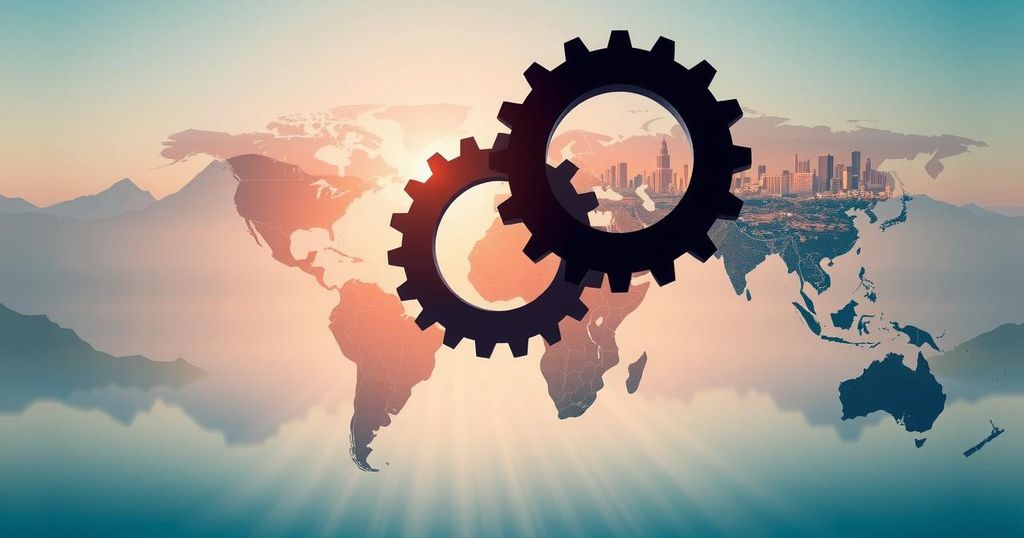Iran’s Foreign Minister Abbas Araghchi and Russian Foreign Minister Sergey Lavrov reaffirmed bilateral cooperation in trade, energy, and infrastructure during a joint press conference. They announced the upcoming Iran-Russia Joint Economic Cooperation Commission and addressed mutual positions on regional issues and Iran’s nuclear negotiations amid rising trade between the two nations despite Western sanctions.
Iran’s Foreign Minister, Abbas Araghchi, has reiterated the ongoing collaboration between Tehran and Moscow to enhance trade, energy interactions, and railway infrastructure development. He stated, “Our consultations with Russia are ongoing across all sectors. In addition to our broad bilateral collaborations, we regularly exchange views on developments in West Asia, the Caucasus, and other strategic regions,” during a joint press conference on February 25.
Araghchi announced that the Iran-Russia Joint Economic Cooperation Commission, aimed at strengthening economic relations in critical sectors like energy, railways, and tourism, will convene shortly. He reaffirmed their mutual positions on essential regional issues, especially regarding Palestine, Lebanon, and Syria, urging a complete withdrawal of Israeli forces from occupied Lebanese territories.
Furthermore, Araghchi addressed the discussions concerning Iran’s nuclear program, underscoring that Tehran and Moscow maintain close consultations regarding the matter. He emphasized that Iran would not negotiate under pressure or sanctions, stating, “As long as the U.S. continues its maximum pressure policy, direct negotiations between Tehran and Washington will remain impossible.”
Russian Foreign Minister Sergey Lavrov highlighted the trade growth between Iran and Russia, noting a more than 13% increase despite prevailing Western sanctions. He expressed satisfaction with the rising trade exchanges and the need to maintain this momentum, underlining the significance of logistical projects such as the Rasht-Astara railway, which connects India to Russia through Iran.
Lavrov also referenced the Comprehensive Strategic Agreement signed during the Iranian president’s visit to Moscow on January 18, indicating aspirations for swift progress on a Eurasian free trade accord. Iranian President Masoud Pezeshkian, in his meeting with Lavrov, emphasized the potentials for enhancing cooperation and the urgency for implementing the strategic agreements between the two nations.
Lavrov’s visit raised speculation regarding possible mediation between Washington and Tehran, as the Iranian government faces severe economic challenges. The Trump administration’s desire for a resolution regarding Iran’s nuclear ambitions poses complexities, particularly given Supreme Leader Ali Khamenei’s rejections of previous engagements.
Finally, the timing of this visit is significant in light of Iranian concerns about US-Russia dialogues in Saudi Arabia aimed at resolving the Ukraine conflict, amidst accusations that Iran has provided drones and missiles to Moscow for use in the ongoing war.
In summary, Iran and Russia are solidifying their economic and regional cooperation amid ongoing tensions with the West. Key discussions are focusing on trade, energy, and logistical projects, with both nations expressing a commitment to strengthen their partnerships. This collaboration is critical as they navigate challenges posed by sanctions and geopolitical dynamics.
Original Source: caspiannews.com




